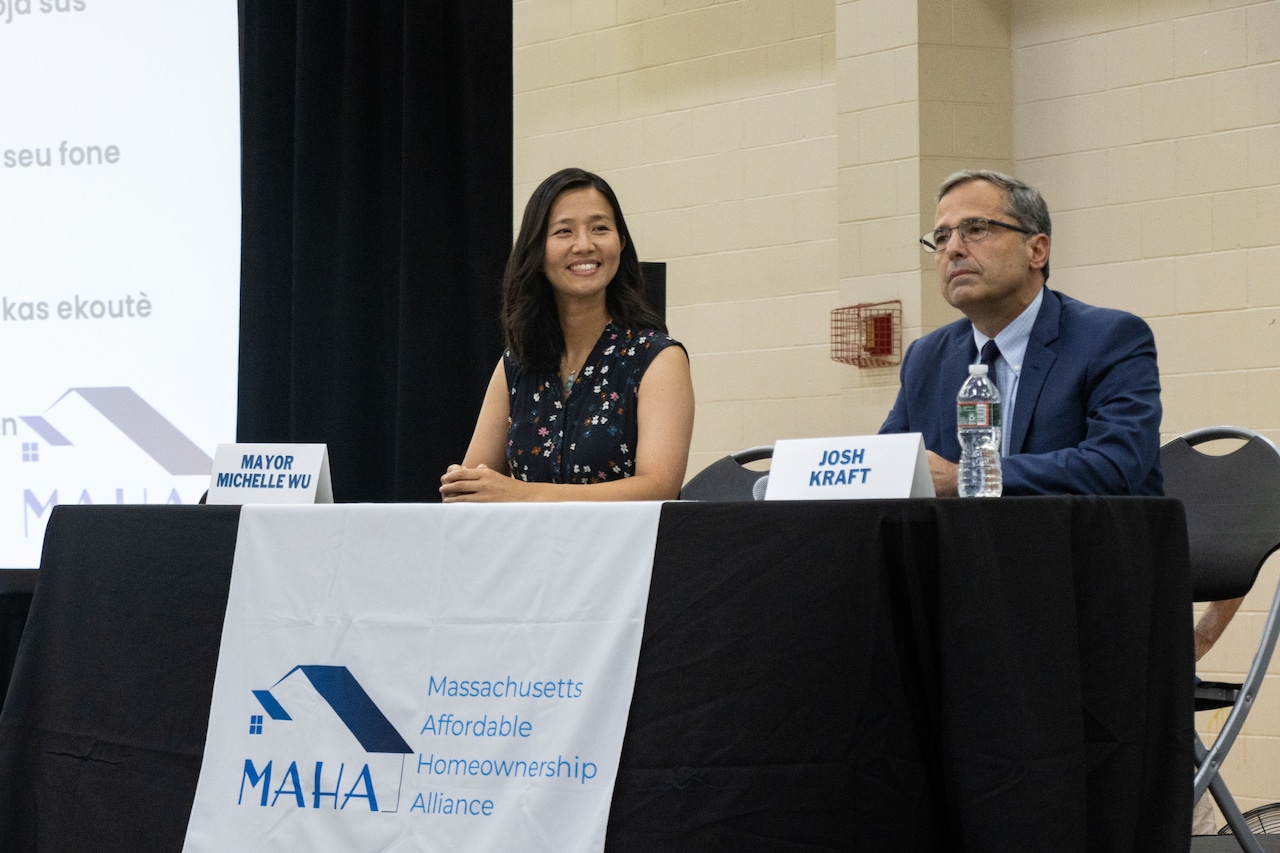With the city’s preliminary election closing in, Boston Mayor Michelle Wu holds a nearly 30-point lead over her nearest challenger, according to a new poll.
Wu leads philanthropist and community activist Josh Kraft 59%-29% in the
new Boston Globe/Suffolk University poll
out Monday.
Both are running as Democrats.
Two more candidates, Robert Capucci and Domingos DaRosa, are polling at 0.8% and 2.8%, respectively, with 6.6% of respondents still undecided.
The poll of 500 likely voters was conducted between July 13 and July 16, with a margin of error of 4.4%.
With super PACs supporting the two candidates blitzing the airwaves and voters’ devices with advertisements, public interest in the race appears high.
Nine in 10 respondents said they are either very or somewhat likely to vote in the September preliminary election.
Nearly two-thirds of respondents (64.6%) said they strongly or somewhat approve of Wu’s job performance as she runs for another term in City Hall.
In a race where affordability issues have taken center stage, voters put housing (26%) and the economy and jobs (17.2%) at the top of their priorities list for the fall campaign.
Wu and Kraft butted heads last week over the high price of housing in the city during a candidates’ forum hosted by the
Massachusetts Affordable Homeownership Alliance
, MassLive
previously reported
.
The two candidates shared their respective visions and plans to reduce housing costs. Both candidates agreed that housing is too expensive in the city, but they
disagreed on the most effective ways to tackle the problem
.
Two-thirds of respondents (65.2%) said they’d like to see the city tackle the issue by imposing some form of rent stabilization.
Nearly 3 in 10 (28%) respectively also said they’d like to see the city ease zoning rules and pump public money into stalled projects.
Kraft has also focused on quality of life issues in the city, such as crime and bike lanes. When it comes to the latter, half of the poll’s respondents (50.2%) have “made it slower and less convenient to get around.”
Just shy of 3 in 10 respondents said the lanes had no impact on their ability to get around the city.











